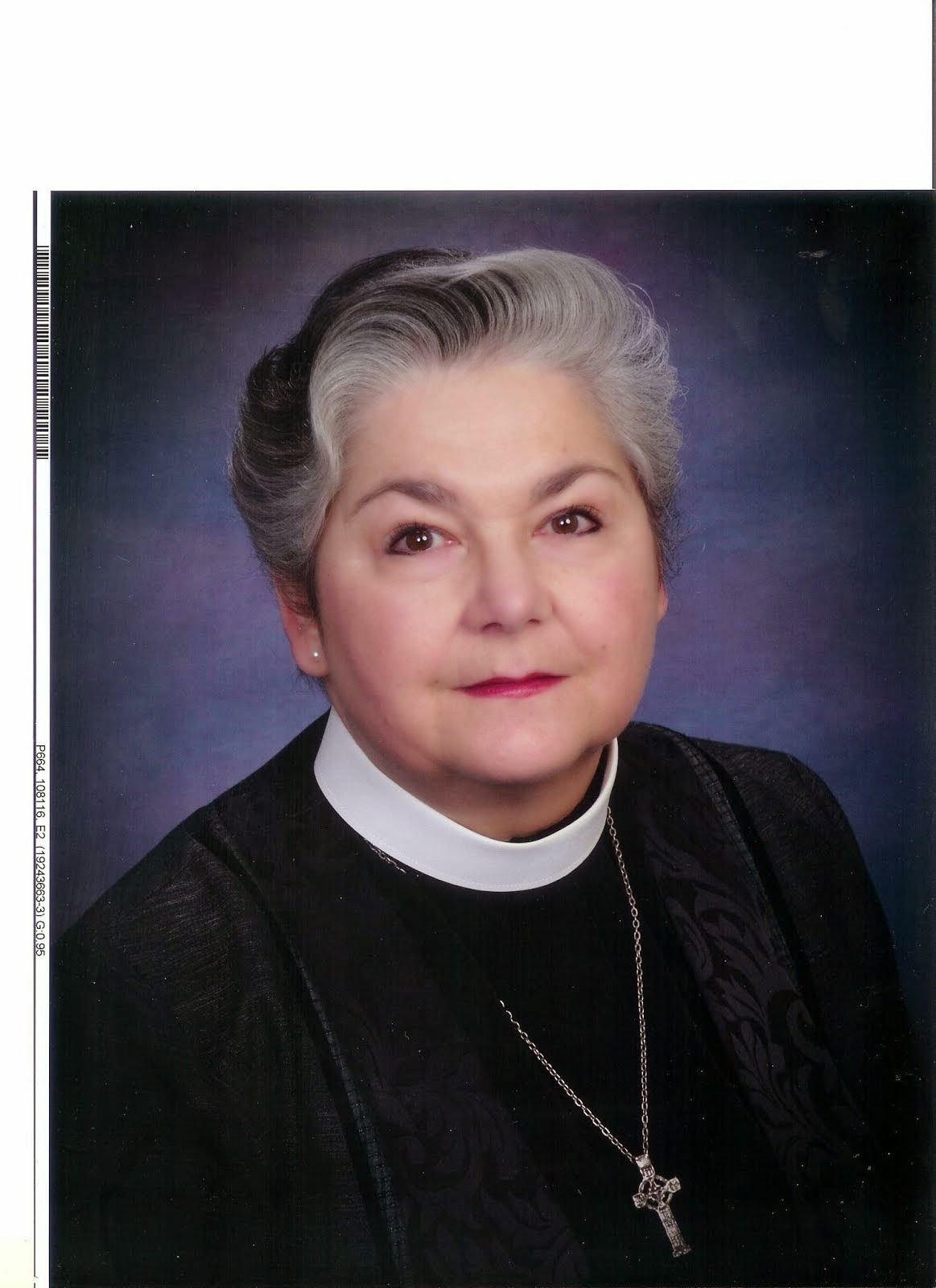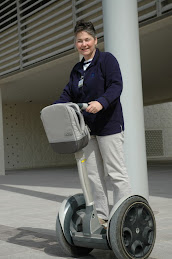There have been times when I was doing my work as an Episcopal priest that I felt like a fraud.
Not in the sense that I was trying to do others harm by pretending I was something that I was not. I've done all the studying, all the test-passing, all the contextual learning, and have had the Bishop lay hands upon me. There is no question but that I am a legitimate priest in the eyes of the church.
No, it is more like I feel like a kid dressing up in grown-up clothes, that I am not really a Priest-with-a-Capital-P. Whatever a Priest-with-a-Capital-P looks or sounds or feels like.
Part of it is following in the footsteps of some very gifted priests who formed me. I have seen them preside at worship, preach, provide exquisitely sensitive pastoral care, share the gospel with others in ways that verge on the magical. When I look at my sometimes bumbling, sometimes tone-deaf self, it is no wonder that I think, "well, I'm not really a priest like X or Y or Z is, I'm just sort of a sorta-priest."
But I get up in the morning, put on the collar (most days) and pull out the Book of Common Prayer, and I stumble along, despite that occasional feeling of "who put ME in charge of this stuff?"
And then there are other moments.
One of the great "aha" experiences of the Ireland trip was one I never expected. Suddenly, my priestly identity was there, solid as a rock, making perfect sense to me, because it made perfect sense to some of the folks with whom I talked.
All without church walls, dog collar, vestments, formal liturgy.
As we reflected on the poetry of pilgrimage that anchored our trip, we were encouraged to engage with someone with whom we had not yet talked about how the poem spoke to us. The conversations were rich and deep, and time and again, people said, "wow, I didn't know why I said that. Thank you..." as if it were something I did that opened a door for them.
It was the Spirit opening that door for them. All I provided was the listening heart, a vessel to receive what they were offering and lift it up as good and important and worthy of attention.
And maybe that is at the heart of what a priest is, after all. We are vessels receiving what God and God's people offer, lifting up what we receive, affirming that it is good and important and worthy of attention. We are not in the judging business (God's job, not ours), we are not in the creating business (see item 1)...we are in the business of noticing.
Last night, Doug said something interesting: "You do something amazing. I don't know how you do it, or how to describe it, but there are at least eight people on that trip who would travel across the country or even from other countries to worship in your church, because of how you received them and talked to them."
I don't think I do anything particularly special, regardless of Doug's characterization. it just feels like a step beyond listening into the realm of noticing, hearing the subtext of the words, seeing the expression on the face or the glisten of an unshed tear or the intensity of tone. And this is not my gift, but the gift that God has given me in this work.
And that is what makes me a priest, I think. Something for which I don't need the external trappings, as beautifully symbolic as they are, or the official declarations, as affirming as they are.
A woman on the trip seemed to be discerning whether she is called to do something more in her own church and is taking it for a test-drive as a lay worship leader. She talked about how she thinks through the tasks that are set before her, what is hard, what feels uncomfortable, what she likes.
As we hiked together, she asked me, "What makes a good pastor?" I think she expected me to say something about preaching, since we had been chatting about sermon preparation before the question.
But it just came out of me, without thought : "They have to be able to listen, and listen deeply."
I thought of a moment with my own bishop, when he had come to confirm people at our parish, and how he and I spent some time alone with a man who was struggling with a terrible addiction, and how the bishop simply held him in his arms for a few minutes before speaking, hearing the man's words through his sobs. Listening deeply. The cope and the miter weren't what made him a bishop in that moment. It was the listening. The hearing. The noticing of the pain and the possibility.
The listening and the noticing are what really matter. The rest is right and good and necessary, but without the listening and the noticing, the rest is incomplete.
So I am grateful for the moment of realizing that this thing I do that my husband (himself no mean listener and noticer) says amazes him is what really is what has made me a priest. Not just an ordained person with the promise of being a priest in God's church, but a priest now and always.
Thank you to those who offer their stories to me, who allow me to notice what they might be too shy to offer others. Thank you to J and M, who asked me to renew their marital commitment in the lee of Galway Bay with poetry and words of blessing and water from the Seven Springs. Thank you to S and your questioning heart. Thank you to K and B, who were willing to listen to a clergywoman despite what the church has done to couples like them in the past. Thank you to C, who has forgotten more than I will ever know, but who offered some of his own journey, discovering new things even in the later years. Thank you to David, whose poetry sparked conversation in wildly diverse tangents.
And thank you, God, for whatever gifts you have given me to do the work. I am what I am, what God made me. A priest in God's church, for all God's people.
Thursday, July 19, 2012
Subscribe to:
Post Comments (Atom)







No comments:
Post a Comment